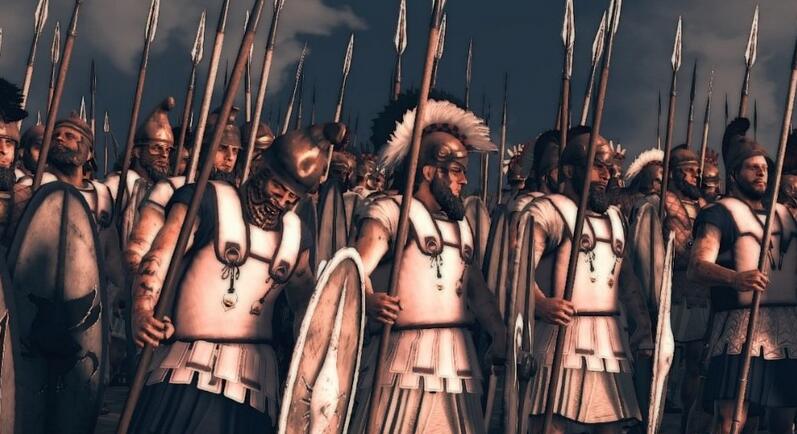Four. Proactive versus Reactive.
第四點(diǎn),主動(dòng)與被動(dòng)
to conquer the eastern Mediterranean
征服地中海東部的戰(zhàn)爭(zhēng)
a proactive version of the just war,
這主動(dòng)的正義之戰(zhàn)
thereby fulfilling the requirements of the ius fetialis.
也是使節(jié)制度的要求
Security reasons dictated that the
安全原因表明
Greek kingdoms and Greek leagues had to be obedient little client states and do the Roman's bidding
希臘王國(guó)和希臘聯(lián)盟必須順從作為羅馬的仆從國(guó)

or get taken over. As it turned out,
或者直接被羅馬吞并,后來(lái)事實(shí)證明
they had to be taken over.
他們不得不被羅馬吞并
The Greeks apparently could not rule themselves.
希臘人顯然無(wú)法自治
And if it took the absolute destruction of the Greek city of Corinth in one forty six BC to make the Greeks realize this the Romans did what they had to do.
也只有完全摧毀希臘的科林斯城,那是在公元前146年這才讓希臘人意識(shí)到羅馬做了他們應(yīng)當(dāng)做的
Even though Carthage was becoming
盡管后來(lái)迦太基又成了
an economic power again, there was no evidence that
經(jīng)濟(jì)強(qiáng)國(guó),但沒(méi)有證據(jù)表明
the new Carthaginian state was going to pose any military danger to Rome.
新起的迦太基會(huì)給羅馬帶來(lái)任何軍事威脅
Cato the Elder's crusade to destroy Carthage
老加圖摧毀迦太基的運(yùn)動(dòng)
at any cost, Karthago delenda est, was more of a political crusade against
無(wú)論如何都是一場(chǎng)政治運(yùn)動(dòng)
the family of Scipio Africanus, which had,
西庇阿家族
you'll recall, taken a moderate stance
他們對(duì)迦太基采取了溫和的立場(chǎng)
towards Carthage. Already Rome's internal struggles were starting to affect its foreign policy
但羅馬的內(nèi)部斗爭(zhēng)已經(jīng)開(kāi)始影響其對(duì)外政策











